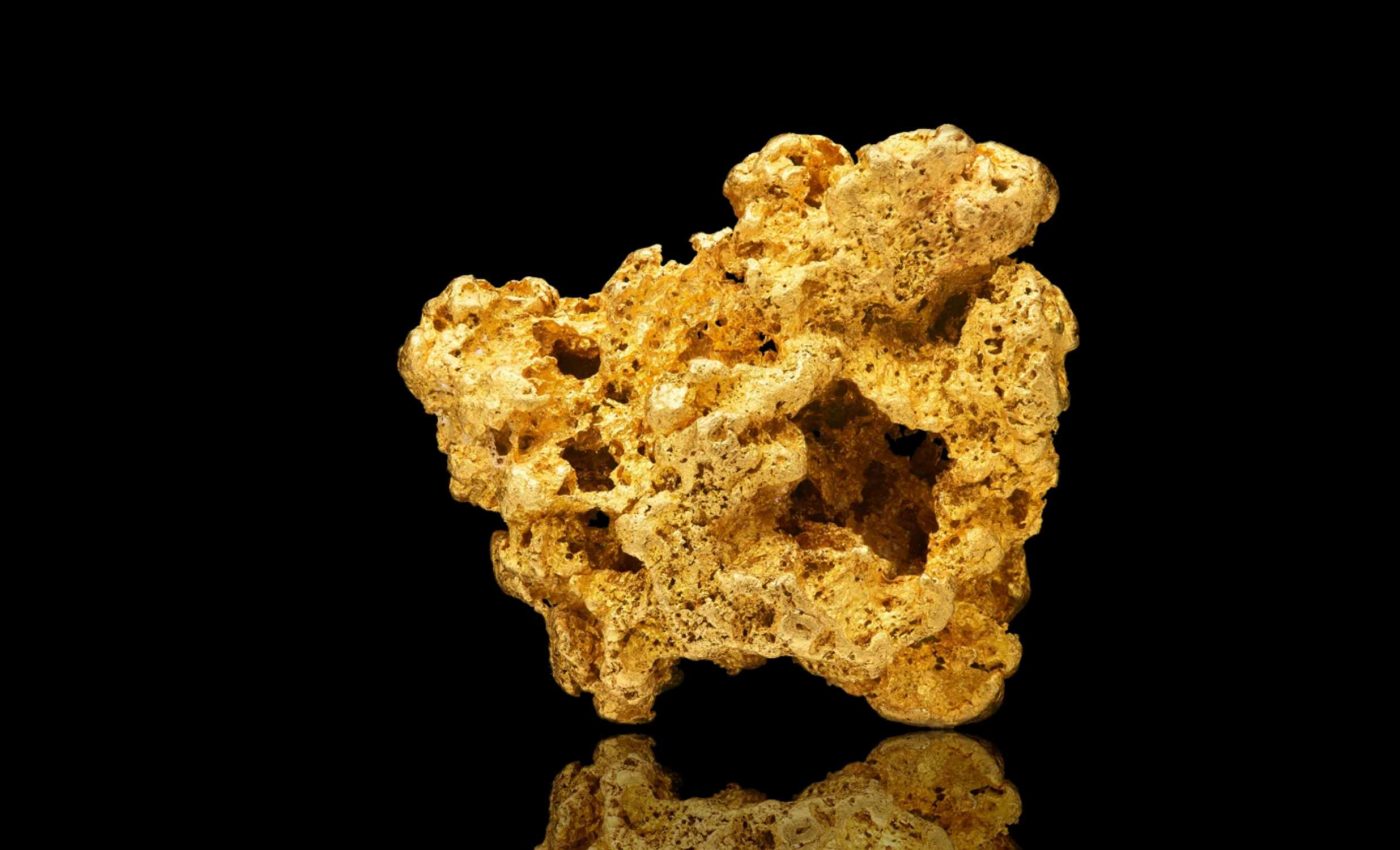
Couple finds a gold nugget measuring 7.5 inches across and weighing more than 9 pounds
They were just out for a little adventure with a metal detector. Few imagined that a casual pastime would lead to an astonishing item destined for auction.
This enormous piece, famously labeled the Golden Beauty, was discovered in 1979 by John and Frances Aggiss in the Kalgoorlie Goldfields of Western Australia.
It is now on display for interested collectors and enthusiasts, with an opening bid that has already reached $400,000.
Craig Kissick, Vice President of Nature and Science at Heritage Auctions, is proud to see this impressive nugget drawing attention.
He has spent years examining unusual collectibles, from prehistoric fossils to meteorites that once lit up distant skies.
Huge gold nugget
This piece of gold measures nearly 7.5 inches across and weighs more than 9 pounds. It ended up in a private Swiss collection after its discovery and has retained a legendary status among experts.
“Gold always has been enormously popular, in part because of its pure value and beauty, but also because it is exceedingly rare,” said Kissick.
“It has been estimated that all of the Gold ever mined could fit in a cube measuring roughly 22 meters (72 feet) in each direction. Very little remains in a natural nugget state, with the vast majority melted down and refined for things like coins and jewelry,” said Kissick.
Experts note that a single troy ounce gold nugget can be harder to locate than a diamond that weighs five carats.
One reason for this scarcity is that gold deposits are scattered and often require extensive mining operations before any visible pieces are brought to the surface.
Additional wonders
While the Golden Beauty garners much of the spotlight, there is another Australian gold nugget on the block. It weighs 15.52 troy ounces, which equals about one pound.
This smaller specimen was anonymously placed into a Salvation Army kettle in December 2024. Proceeds from that find will be sent to the Salvation Army’s Annual National Commander’s Red Kettle Challenge 2025.
Historical backdrop
Australia has produced large gold finds since the 1800s. Entire towns boomed around the precious metal, with thousands drawn to the region in hopes of striking it rich.
“Finding a Gold nugget of any size is an absolute trophy, but to find something like this is beyond rare,” said Kissick. Not many of those explorers walked away with a piece this size.
Sparkling appeal
The allure of gold has influenced human civilizations for centuries. It has also sparked economic shifts and fueled historic expeditions across challenging territories.
Prized for its brightness and lasting composition, gold requires no special preservatives to maintain its appearance. This durability has made it useful for currency, jewelry, and ceremonial objects that still captivate people.
Unique moment
Collectors often see natural gold nuggets as tangible links to exploration. Each piece can reflect the surrounding geology, embedding hints about the conditions under which it formed.
Bidders who step forward at this event will compete for a true conversation piece. Its striking shape and glimmering edges capture attention without much effort.
Where curiosity leads
Stories of bold hunts for precious metals remain popular. Even those who do not share this hobby can appreciate the excitement of finding hidden wealth in a remote location.
Science enthusiasts also enjoy learning the details behind how gold arises in rock formations. Heated fluids carry dissolved metals through cracks, and over long periods, these metals can solidify into lumps that eventually catch a prospector’s eye.
Broader lessons
The Golden Beauty stands as a remarkable reminder of what might be lying beneath our feet. It fuels questions about Earth’s resources and how they form over millions of years.
Many items in this auction underscore the incredible variety found in nature. A fossilized bone can connect us to extinct animals, while a gleaming nugget points to geological marvels.
Lasting intrigue
Gold is said to spark visions of instant fortune. Its presence in stories, songs, and cultural practices ensures that people will always be enthralled.
Witnessing such a massive find reminds us of the surprises lurking where we least expect them. It also highlights the importance of respecting and studying natural materials responsibly.
Supporting good causes
It is refreshing to see part of this event benefit a charitable effort. That second nugget’s journey from Australia to a holiday kettle shows that luck and generosity can intersect in surprising ways.
Those who follow metal detecting communities have many anecdotes like this. Yet very few of these discoveries match the magnitude of what John and Frances uncovered.
Community interest
Collectors will always crave items that are both beautiful and storied. Auction-watchers cannot help but wonder who will claim this special piece.
Individuals engaged in these auctions often support museums or private displays. They may also safeguard these items until a future generation decides to bring them to the public eye.
Searching for future gold nuggets
Hobbyists might feel motivated to keep scanning local grounds, hoping for their own golden day. Many do so for exercise or relaxation, but occasional finds show that thrilling possibilities exist.
For science-minded adventurers, every beep on the detector raises anticipation. Sometimes, that beep leads to an artifact with a powerful story.
—–
Like what you read? Subscribe to our newsletter for engaging articles, exclusive content, and the latest updates.
Check us out on EarthSnap, a free app brought to you by Eric Ralls and Earth.com.
—–













